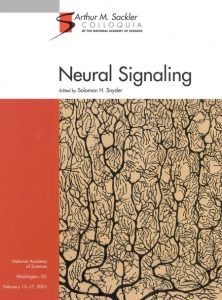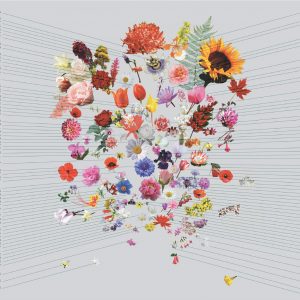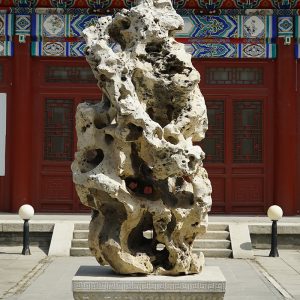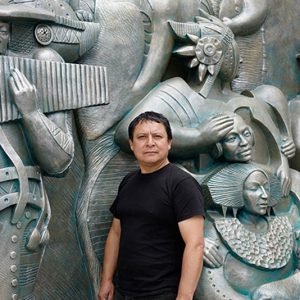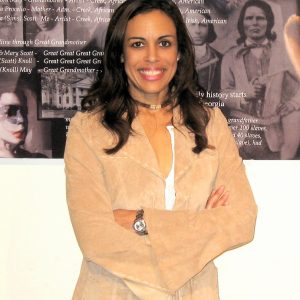The inspiration for the Arthur M. Sackler Colloquia began in 1986 following discussions between Dr. Arthur M. Sackler and Dame Jillian Sackler with Dr. Frank Press, President of the National Academy of Sciences, about the need to break through the then-prevailing stove-top model of separating scientific specialties. They agreed to start the Arthur M. Sackler Colloquia so research results could be shared with various scientific disciplines, ensuring cross-fertilization of ideas and quicker implementation of findings. Annually, four Colloquia would be convened at the NAS headquarters in Washington, DC and contributors from all over the world would be invited, with an eminent keynote speaker giving the Arthur M. Sackler Lecture. Following Dr. Sackler’s untimely death in 1987, this program was established by Dame Jillian Sackler.
The inaugural Arthur M. Sackler Colloquium, titled “Neural Signaling,” was held on February 15–17, 2001, marking the formal start of the series. The Colloquia were made possible by a generous endowment from The Dame Jillian and Dr. Arthur M. Sackler Foundation for the Arts, Sciences & Humanities, in memory of Arthur M. Sackler.
The Arthur M. Sackler Colloquia addressed scientific topics of broad and current interest that cut across the boundaries of traditional disciplines. Each year, three to four Colloquia were scheduled, typically two days in length and international in scope. Each colloquium was organized by a member of the NAS, often with the assistance of an organizing committee, and feature presentations by leading scientists in the field and discussions among one hundred or more researchers with an interest in the topic. Colloquia were held at the Arnold and Mabel Beckman Center in Irvine, California. One Colloquia each year was held at the National Academy of Sciences in Washington, D.C. and included the Annual Sackler Public Lecture.
Selected Arthur M. Sackler Colloquia (2001–2024):
- Neural Signaling
- Date: February 15–17, 2001
- Details: The inaugural colloquium, launching the series with a focus on neuroscience.
- Self-Organized Complexity in the Physical, Biological, and Social Sciences
- Date: February 19, 2002
- Details: Explored complexity across disciplines; published in PNAS (99(Suppl. 1)).
- Chemical Communication in a Post-Genomic World
- Date: November 25, 2003
- Details: Focused on chemical signaling post-genomics; PNAS (100(Suppl. 2)).
- Mapping Knowledge Domains
- Date: April 6, 2004
- Details: Addressed organizing scientific knowledge; PNAS (101(Suppl. 1)).
- Systematics and the Origin of Species
- Date: May 3, 2005
- Details: Evolutionary biology focus; PNAS (102(Suppl. 1)).
- In the Light of Evolution III: Two Centuries of Darwin
- Date: June 16, 2009
- Details: Part of a recurring evolution series; PNAS (106(Suppl. 1)).
- The Science of Science Communication
- Date: May 21–22, 2012
- Details: Launched a trilogy on science communication; PNAS (110(Suppl. 3), 2013).
- In the Light of Evolution IX: Clonal Reproduction: Alternatives to Sex
- Date: January 9–10, 2015
- Details: Evolution series continued; PNAS (112(3)).
- Coupled Human and Environmental Systems
- Date: March 14–15, 2016
- Details: Included the 16th Annual Sackler Lecture; PNAS (114(22)).
- Creativity and Collaboration: Revisiting Cybernetic Serendipity
- Date: March 13–14, 2018
- Details: Explored art-science intersections; PNAS (116(6)).
- Using Monkey Models to Understand and Develop Treatments for Human Brain Disorders
- Date: January 7–8, 2019
- Details: Neuroscience focus; PNAS (116(52)).
- The Science of Deep Learning
- Date: March 3–4, 2019
- Details: AI and machine learning; PNAS (117(48), 2020).
- Life 2.0: The Promise and Challenge of a CRISPR Path to a Sustainable Planet
- Date: June 1, 2021 (published date; event likely earlier)
- Details: CRISPR technology and sustainability; PNAS (118(22)).
- Advancing the Science and Practice of Science Communication: Misinformation about Science in the Public Sphere
- Date: April 3–4, 2019
- Details: Tackled misinformation; PNAS (118(15), 2021).
For a complete list, please consult the National Academy of Sciences’ official records or PNAS archives (nasonline.org or pnas.org)
This program officially ended on December 31, 2024.
- Arthur M. Sackler Colloquia of the National Academy of Sciences
